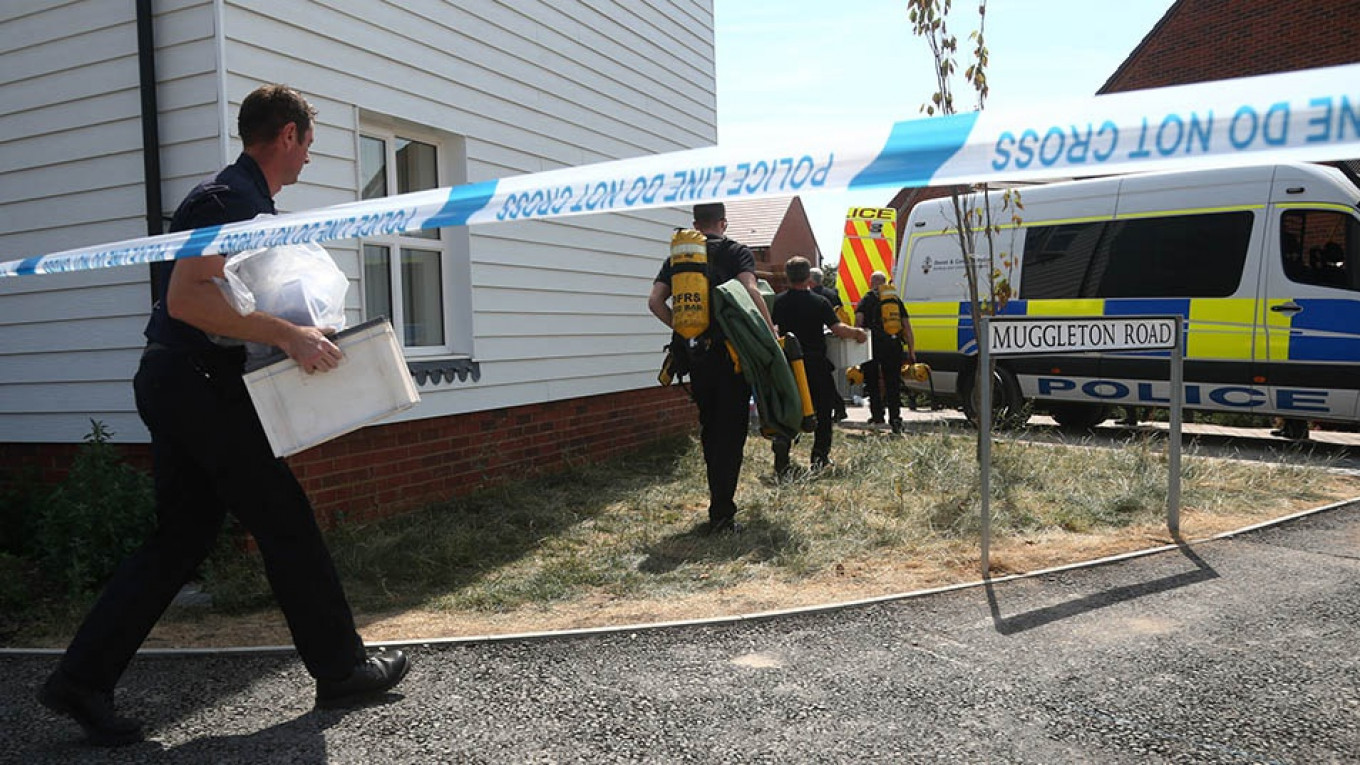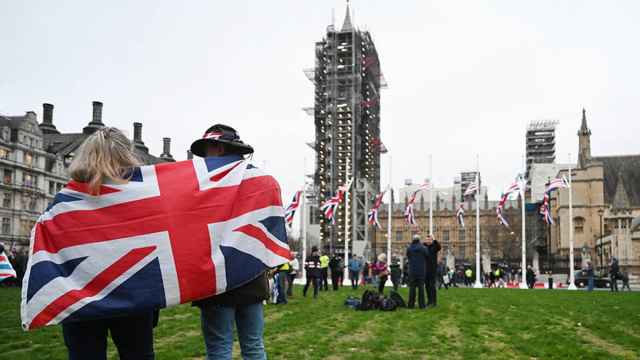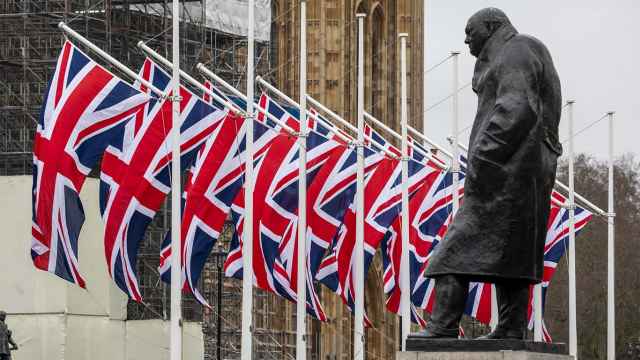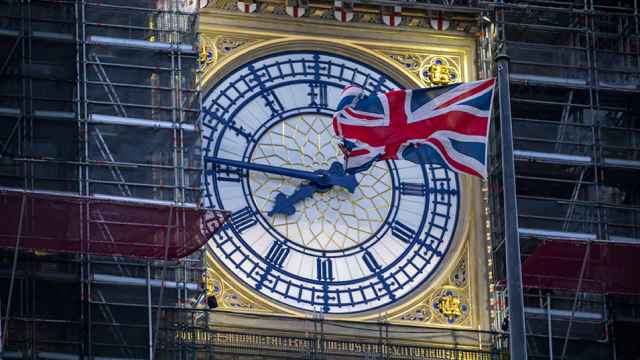Russia's embassy to Britain said on Monday it would regard the Amesbury poisoning incident which has left one woman, Dawn Sturgess dead, as an anti-Russian provocation in the absence of access to the investigation.
Britain's top counter-terrorism officer has said Sturgess died after being poisoned with a nerve agent that also struck a former Russian spy, Sergei Skripal and his daughter Yulia, in March.
"Without access to the investigation files and to our two citizens (the Skripals), we will consider the incidents in Salisbury and Amesbury as an irresponsible anti-Russian provocation by official London," the embassy said in a statement.
The Kremlin said on Monday it was sorry to hear that a British woman, Dawn Sturgess, had died after being poisoned by a nerve agent, but said any suggestion that Russia was involved would be "quite absurd."
"We continue to be deeply worried by the continuing presence of these poisonous substances on British territory," Kremlin spokesman Dmitry Peskov told reporters when asked about the death of Sturgess. "We consider that it is a danger not only for the British, but for other Europeans."
Russia, which is currently hosting the football World Cup, has denied any involvement in the Skripal case and suggested the British security services had carried out the attack to stoke anti-Moscow hysteria.
A Message from The Moscow Times:
Dear readers,
We are facing unprecedented challenges. Russia's Prosecutor General's Office has designated The Moscow Times as an "undesirable" organization, criminalizing our work and putting our staff at risk of prosecution. This follows our earlier unjust labeling as a "foreign agent."
These actions are direct attempts to silence independent journalism in Russia. The authorities claim our work "discredits the decisions of the Russian leadership." We see things differently: we strive to provide accurate, unbiased reporting on Russia.
We, the journalists of The Moscow Times, refuse to be silenced. But to continue our work, we need your help.
Your support, no matter how small, makes a world of difference. If you can, please support us monthly starting from just $2. It's quick to set up, and every contribution makes a significant impact.
By supporting The Moscow Times, you're defending open, independent journalism in the face of repression. Thank you for standing with us.
Remind me later.







